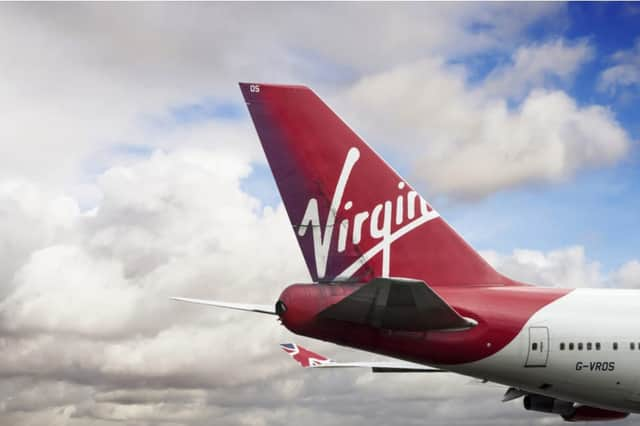Richard Branson’s Virgin Orbit rocket failed on its first flight - here’s why


The maiden flight of Sir Richard Branson’s Virgin Orbit didn’t go quite according to plan, with the rocket failing during its first ever test launch.
The 70 foot (21.3 metre) rocket was carried aloft by a Boeing 747 and released over the Pacific Ocean off the coast of Southern California on Monday 25 May.
Why did it fail?
Advertisement
Hide AdAdvertisement
Hide AdThe inaugural launch appeared to be going as planned, until moments after the rocket was dropped from beneath the left wing of the jumbo jet, named Cosmic Girl.
In its official Twitter commentary of the launch, Virgin Orbit said, “We’ve confirmed a clean release from the aircraft.
“However, the mission terminated shortly into the flight. Cosmic Girl and our flight crew are safe and returning to base.”
The jumbo jet took off from Mojave Air and Space Port in the desert, north of Los Angeles, and flew out just beyond the Channel Islands, where the drop occurred.
Advertisement
Hide AdAdvertisement
Hide AdThe rocket, which was carrying a test satellite, was supposed to fall for a few seconds before the first of its two stages ignited.
It then hurtled down the coast towards the South Pole before its satellite went into low Earth orbit.
Chief executive officer Dan Hart said during the briefing that there had been numerous tests, discussions and introspection to verify that the system was ready.
He commented, "In the end the questions are always, has everything been thought about and are there any gaps or seams, and those are the questions you only learn when you commit to flight.”
What was the launch for?
Advertisement
Hide AdAdvertisement
Hide AdVirgin Orbit had hoped the flight would help them to gather data on every step of the launch process, rather than to have a working satellite in orbit. The satellite intended to orbit very low so as to avoid contributing to the problem of space litter.
A team had been working on the LauncherOne rocket for five years and it was not immediately clear how long the failed launch will set the company back.
However, it has six more rockets under construction in its factory as Virgin Orbit attempts to target the market for launching small satellites, ranging in size from toasters to household refrigerators.
The company said, “The team’s already hard at work digging into the data, and we’re eager to hop into our next big test ASAP.
Advertisement
Hide AdAdvertisement
Hide Ad“Thankfully, instead of waiting until after our first flight to tackle our second rocket, we’ve already completed a ton of work to get us back in the air and keep moving forward.”
Virgin Orbit says it has dozens of missions on its books for customers, including the US Space Force and the Royal Air Force. Internationally, it is working on plans for launches from the UK and Japan.